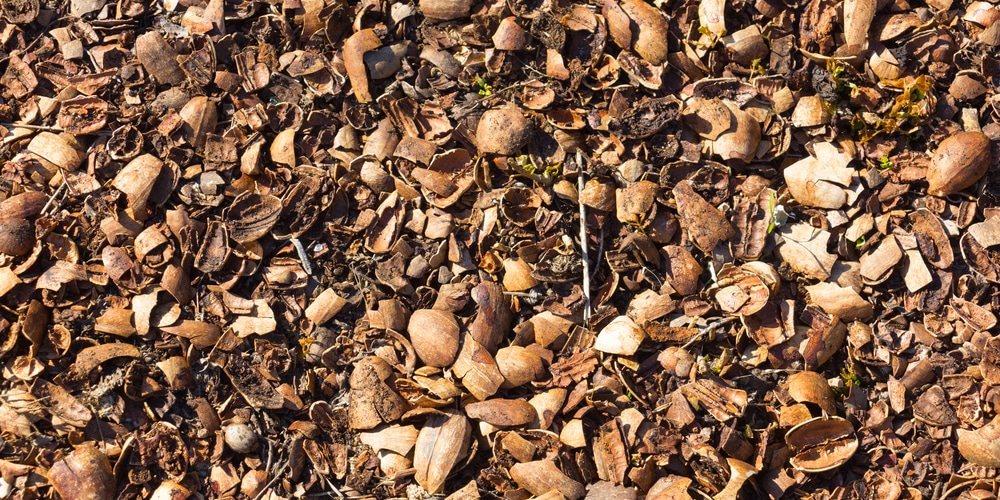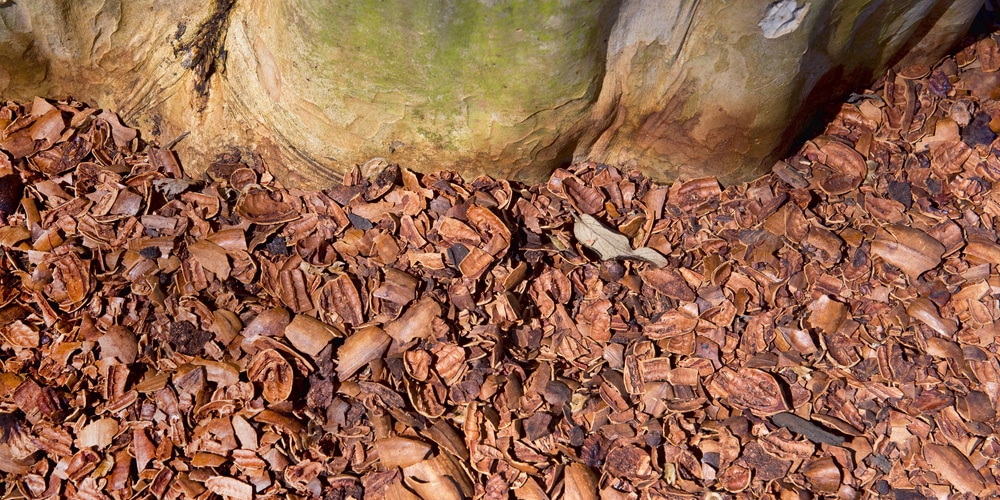If you are into gardening, you should know about the crucial role mulch plays in the health of your plants. Indeed, it helps increase water retention, protects trees and plants from thermal shocks, and acts as a barrier against pests and diseases. But are you familiar with the different types of mulch you can choose from? And do you know about pecan shell mulch pros and cons? If you don’t, don’t worry: we are here to help!
Here, we’ll outline the pros and cons of using pecan shells as your mulch. Ideally, with this information on hand, you should be able to decide whether this solution works for you or not.
What is Pecan Shell Mulch?

There are several types of organic mulch out there. While most are effective measures to improve drainage and water retention, choosing one material over the other depends on several factors, including soil and local climate conditions.
As you may expect from its name, pecan shell mulch comes from the shells of the nuts. Many gardeners like to use it because of its effectiveness and aesthetic appeal. Its dark color and dense texture may contribute to increasing the looks of your garden.
Also, many people like to do their mulch instead of purchasing. And with pecan shells, the process is simple. However, you must use cracked pecan shells. Otherwise, it may attract squirrels and birds to your garden, which might cause you several problems.
However, with that said, when you do it the right way, pecan shells mulch is an effective method to increase water retention, keep your plant hydrated, and provide them with all the nutrients they need. So, yes, you can use pecan shells as mulch, but you’ll have to learn how to do it properly.
Benefits of Using Pecan Shell Mulch
One of the best things about using pecan shells mulch is that the unique shape of this material allows for better integration with the soil. In turn, this results in increased effectiveness. Also, pecan shells break down slower than wood, meaning their water retention effects will last longer. Plus, their looks are attractive, making your landscape more inviting.
And if you need something to keep unwanted growth under control, adding a layer of pecan shells may be your ideal solution. Indeed, if you have grown plants before, you may know that weeds can be a severe issue with gardening. And organic mulches can help minimize their appearance. While their effectiveness depends on the degree of the infestation, mulching is an efficient preventive measure.
Plus, pecan shell mulch will keep soil temperatures stable. So, cold temperatures have lower chances of damaging your plants. Of course, you should always protect your perennials from frost, against which mulch cannot do much.
For this reason, we recommend you against relying all on your hope on mulching. As soon as the temperatures start to drop, take other protective measures. Remember that some plants will only survive if you overwinter them indoors.
So, overall, using pecan shells mulch is an excellent idea. And even more so around acid-loving plants. For instance, if you are growing rhododendrons or azaleas, you’ll be positively surprised by how much can this type of mulch do for your plants.
Indeed, its pH levels can lower soil alkalinity and make it more acidic. Additionally, pecan nuts are high in phosphate, manganese, iron, and copper, which many plants need to thrive.
Drawbacks of Using Pecan Shells Mulch
Let’s be honest. So far, we only said positive things about pecan mulch. But, as you may already know, things are not always perfect. And there are some disadvantages of using pecan shells as your mulch. However, there aren’t as many drawbacks to pecan shells as you may expect.
For starters, this material is costly. So, if you have a large lawn (and a tight budget), you should look for alternatives. Of course, if you live in a pecan nuts-producing area, things might be different for you. But you can use pecan shells in some areas of your garden.
Besides that, pecan mulch can be extremely lightweight. So, if you live in a windy region, it might blow. You have two options to overcome such problems: the first is to keep your mulch moist, and the second is to change to heavier material.
Related Article: How to Plant Pecan Trees From a Seed
